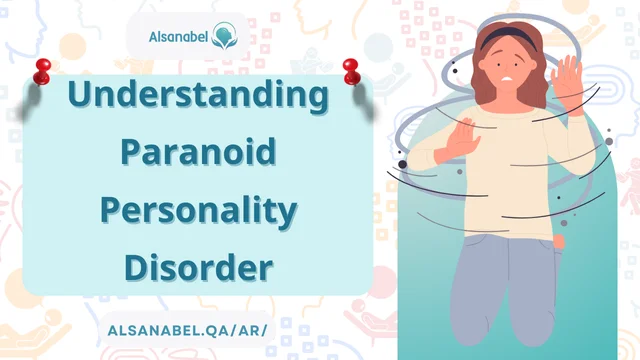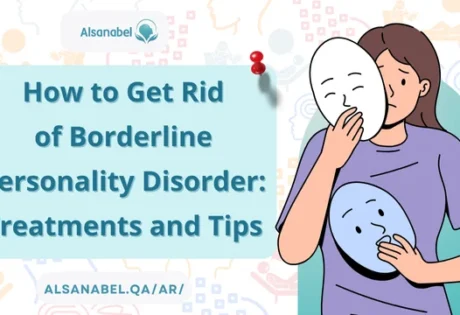
Paranoid Personality Disorder (PPD) is a complex and challenging mental health condition characterized by pervasive distrust and suspicion of others. Individuals with this disorder often struggle with interpersonal relationships, decision-making, and emotional regulation due to their heightened sensitivity to perceived threats. While the primary treatment approach involves psychotherapy, medication can play a significant role in addressing associated symptoms such as anxiety, delusions, or mood disturbances. Understanding the available paranoid personality disorder medication options and their effectiveness is essential for devising a comprehensive treatment plan.
This article explores the therapeutic landscape for managing PPD, emphasizing the use of anti-anxiety medications, mild antipsychotics, and trust-enhancing techniques like trust-building therapy. Additionally, we will discuss the integration of therapy and medication, side effects, and the duration of treatment for effective paranoia management.
Understanding Paranoid Personality Disorder
To appreciate the role of medication in treating PPD, it is essential to first understand the condition and its impact on an individual’s mental health and relationships.

Core Symptoms of PPD
- Persistent Suspicion
- Individuals often harbor an unfounded belief that others have malicious intent toward them.
- Difficulty Trusting Others
- A hallmark of PPD is the inability to form meaningful relationships due to mistrust and guarded behavior.
- Emotional Detachment
- These individuals frequently isolate themselves, avoiding vulnerability or emotional intimacy.
- Paranoia
- Heightened fear of betrayal or harm dominates their interactions, significantly affecting their quality of life.
The Role of Medication in PPD Treatment
Medication is not a standalone solution for PPD but is frequently used to manage symptoms that interfere with daily functioning. Medications help stabilize mood, reduce anxiety, and address paranoid thoughts when combined with psychotherapy.
Key Medications for PPD
- Anti-Anxiety Medications
- These are prescribed to alleviate chronic anxiety and stress that exacerbate paranoid tendencies.
- Mild Antipsychotics
- Low doses of antipsychotic medications may be used to manage severe paranoia or delusional thinking.
- Antidepressants
- In cases where depression coexists with PPD, antidepressants can help improve mood and emotional regulation.
Effectiveness of Medication
- Stabilizing Emotions
- Medication reduces the intensity of emotions such as anger or fear, creating a foundation for trust-building efforts.
- Supporting Therapy
- By alleviating acute symptoms, medications enhance the effectiveness of psychotherapy and other therapeutic interventions.
The Role of Psychotherapy in PPD Treatment
While medication addresses symptoms, therapy at Al Sanabel Specialized Psychiatric Center In Qatar focuses on the root causes and long-term management of PPD.
Effective Therapeutic Approaches
- Trust-Building Therapy
- This approach fosters a safe environment where individuals can explore their thoughts and gradually develop trust in others.
- Cognitive Behavioral Therapy (CBT)
- CBT helps individuals recognize and challenge distorted beliefs, reducing paranoid thoughts.
- Treatment for Delusions
- Specific techniques target delusional thinking, offering alternative perspectives to counter paranoia.
Combining Therapy and Medication
Integrating therapy and medication often yields the most effective outcomes for individuals with PPD.
Benefits of a Combined Approach
- Comprehensive Symptom Management
- While medication reduces acute symptoms, therapy addresses underlying causes and equips individuals with coping mechanisms.
- Enhanced Trust in the Treatment Process
- A multi-faceted approach helps build confidence in the effectiveness of the treatment plan.
- Holistic Recovery
- Combining physical symptom management with emotional growth promotes long-term stability and improved relationships.
Potential Side Effects of Medications
While medications for PPD can be effective, they are not without risks. Understanding potential side effects is critical for informed decision-making.
Common Side Effects
- Antipsychotics
- Side effects may include drowsiness, weight gain, or dry mouth.
- Antidepressants
- Nausea, headaches, and changes in appetite are typical concerns.
- Anti-Anxiety Medications
- These may cause dizziness, fatigue, or dependency with prolonged use.
Duration of Medication Treatment
The duration of medication treatment varies depending on the severity of symptoms, response to treatment, and individual circumstances.
Short-Term Goals
- Immediate Symptom Relief
- Medications are often prescribed initially to address acute symptoms such as anxiety or paranoia.
Long-Term Management
- Ongoing Stabilization
- In some cases, maintenance doses are recommended to prevent relapse.
- Periodic Reassessment
- Regular evaluations ensure that the treatment remains effective and side effects are minimized.
Answering Key Questions About PPD Medication

1. What medications are used to treat paranoid personality disorder?
Common medications include anti-anxiety medications, mild antipsychotics, and antidepressants, which help manage symptoms such as paranoia, anxiety, and mood instability.
2. Are medications effective in reducing symptoms of paranoid personality disorder?
Yes, medications can effectively reduce acute symptoms, stabilize emotions, and support the therapeutic process when used as part of a comprehensive treatment plan.
3. What are the side effects of medications for paranoid personality disorder?
Potential side effects include drowsiness, nausea, weight changes, and dependency, varying by the type of medication prescribed.
4. Can therapy and medication be combined for treating paranoid personality disorder?
Yes, combining therapy and medication often leads to better outcomes by addressing both the symptoms and underlying causes of the disorder.
5. How long does medication treatment for paranoid personality disorder last?
The duration of treatment depends on individual needs, with short-term use for acute symptom relief and long-term use for ongoing stabilization in some cases.
Treating Paranoid Personality Disorder requires a comprehensive approach that balances paranoid personality disorder medication, therapy, and lifestyle adjustments. While medications such as anti-anxiety medications and mild antipsychotics provide symptom relief, the cornerstone of long-term recovery lies in psychotherapy and trust-building therapy.
Understanding the nuances of managing paranoia and addressing individual challenges empowers individuals and caregivers to navigate the complexities of PPD effectively. By fostering trust and maintaining consistency in treatment, individuals with PPD can achieve improved mental health and a higher quality of life.

